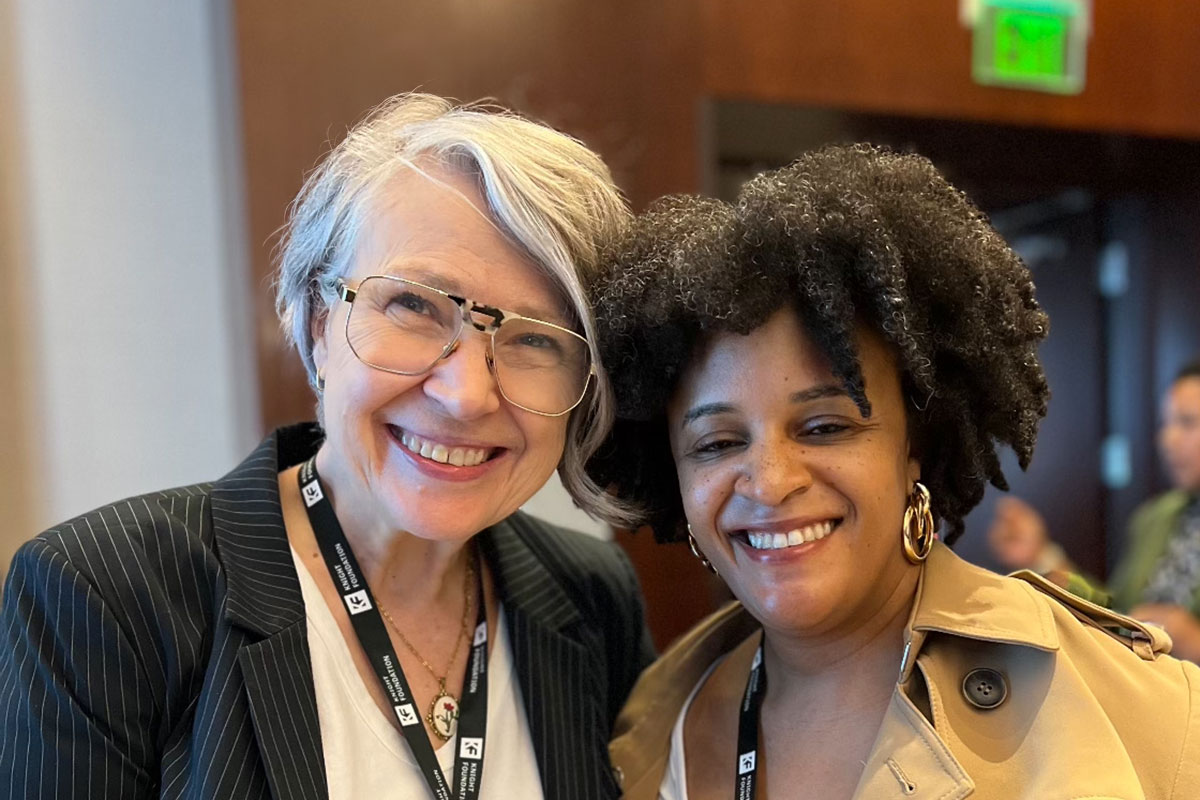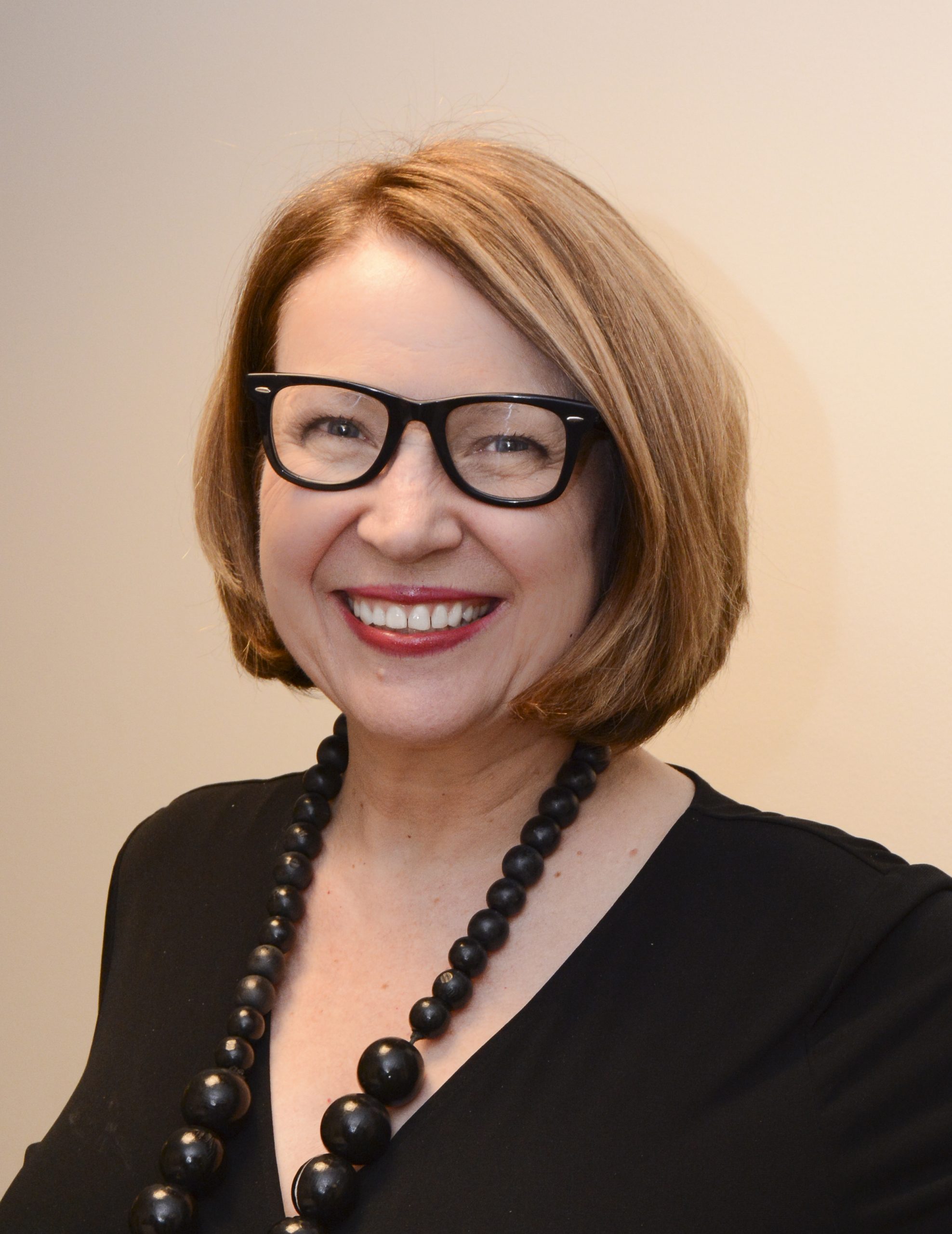I’d been noting the fantastic and outspoken tweets of Baltimore Beat founder Lisa Snowden-McCray even before she got into a Twitter/X fight with David Simon of “The Wire” fame. Put simply, she had gently chided the cussy, outspoken Baltimorean for only lifting up the much-richer and, let’s be honest, much-whiter nonprofit Baltimore Banner and not her popular and unapologetically Black newsroom for donations. Let’s just say he didn’t appreciate her challenging him, and she stood her ground—not slamming the Banner, which does some good journalism, but reminding followers that it’s not the only journalistic game in a town that needs many.
We hadn’t met then, but Lisa had already caught my eye because she had started a local newspaper, in print, in one of America’s greatest majority-Black cities, and one with a horrifying race and slavery history and the inevitable systemic inequity that followed. Plus, I love that she calls it an “alternative” paper, especially considering that old-school alt-media was overwhelmingly white. She distributes it for free in boxes across Baltimore’s Black communities. She did it with minimum resources and a small staff in a city where other media (still) dramatically under-serve all its communities. And she fully understands that “inclusive” journalism in a majority-Black city (we’ve fortunately moved past “diverse” in our language now) doesn’t mean mostly covering certain crimes, sports or music, and then heading to happy hour.
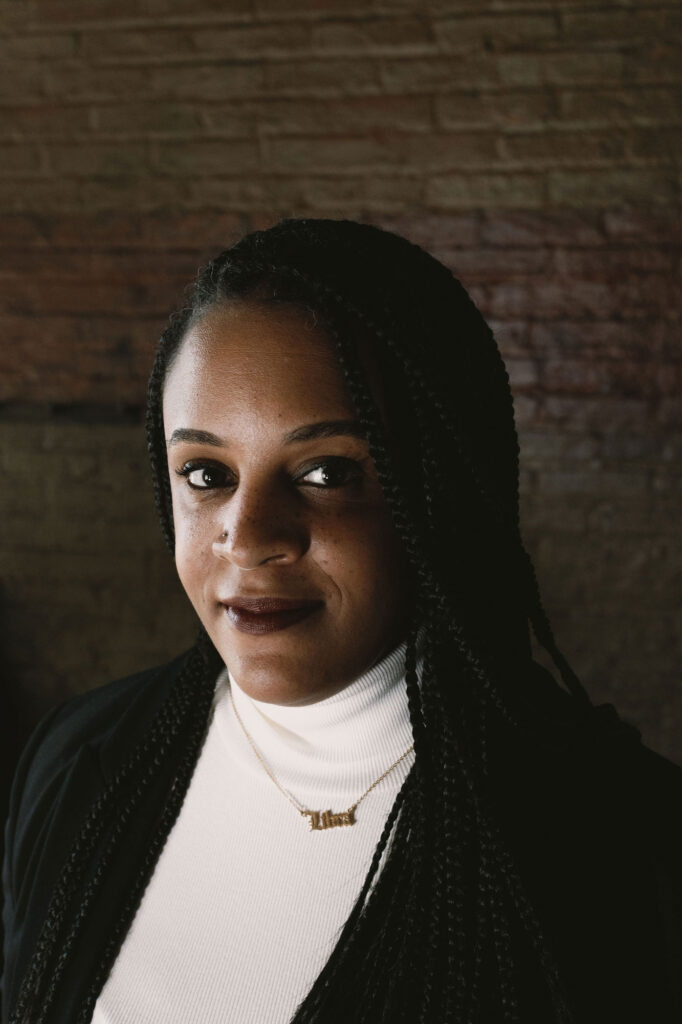
In other words: She and I and Mississippi Free Press co-founder Kimberly Griffin have a lot in common. And not just that our original Jackson Free Press was printed and distributed free in boxes. In fact, co-founder Todd Stauffer, and then Kimberly after she joined and I all drove around the city and helped put those free papers in boxes where white and corporate newspapers barely showed up for two decades. Plus, I think everyday about my friend Reena Evers-Everette both giving her blessing to name our new nonprofit newsroom after her father Medgar’s MFP—and asking me to please figure out how to keep printing and distributing in Black neighborhoods in the Jackson area. “People rely on the Free Press,” she told me before becoming our first advisory board member. “Please keep printing it.”
Of course, the pandemic changed those plans, and we had to stop printing the JFP, and our new nonprofit purchased its journalism assets. Yes, by later this year a new MFP site will pull in all those archives, which is exciting and necessary for the world’s search history of otherwise-ignored Jackson news. But we still have the boxes and racks in a warehouse waiting for a chance to start printing even monthly papers again in news-desert ZIP codes, which were loyal readers for so long.
In fact, I used to pick up the phone on a Wednesday morning to a voice like, “The papers are late at the so-and-so barber shop.”
Lisa gets why local print papers are still important. So do Kimberly and I. (Let us know if you want to help make it happen again.)
Plotting Ways to Work Together
I was inspired to write about Lisa (and another badass woman nonprofit news founder; keep reading) as we were walking the dog last night, and someone called out to me that Mississippi State University journalism prof Pete Smith (an MFP advisory board member) name-checked me at a History Is Lunch talk on Thursday about his wonderful book, “Bird Dogs and Tough Old Broads: Women Journalists of Mississippi and a Century of State Politics, 1880s-1980s.” That means I woke up today thinking about women journalism leaders, and the rough waters we still have to navigate, damn it.
Lisa was already front of mind for me because I got to spend quality time with her last week at the American Press Institute’s media summit in Lebronland up in Akron, Ohio. We were there with several dozen other local news founders as well as thoughtful editors and reporters from across the country who know that election coverage is broken across America. It has long been mired in horserace and usually through the perspective of white male political reporters and editors treating it like a fun game rather than life-or-death work, especially for those who don’t look like them or enjoy the same privileges.
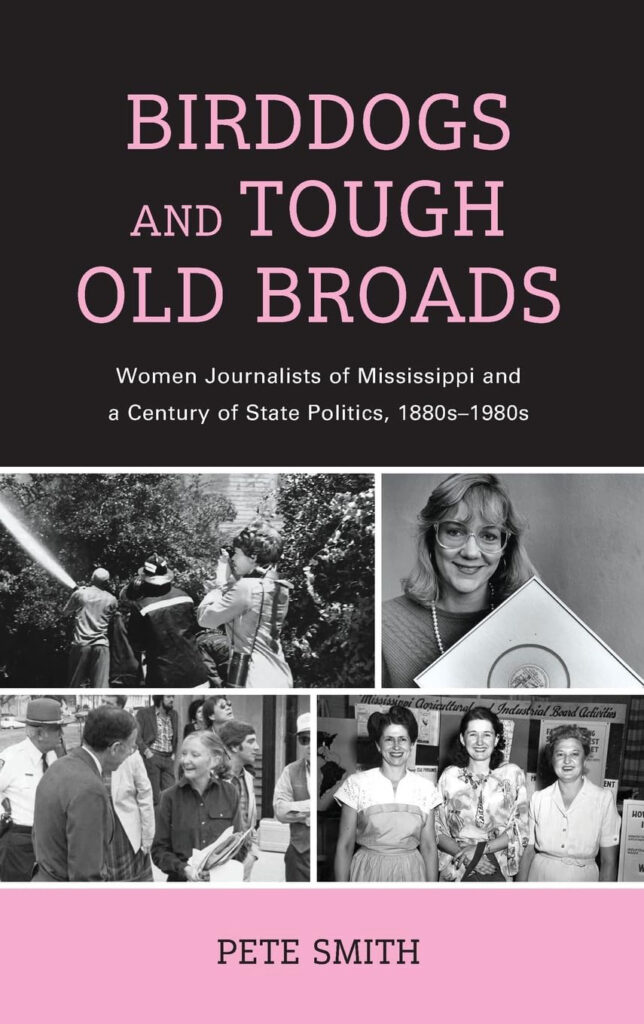
Following up on a brainstorm we started at the Knight Media Forum in Miami in March, Lisa and I continued plotting ways our newsrooms can work together and even do cross-training and journalism with both Maryland and Mississippi connections. (That shared connection is not hard to find if you know the censored part of history as we both do.) Meantime, in a remarkable gathering, API led us through dialogue and mindsharing about ways to improve election and “political” (a word we should dump from mastheads) reporting across the U.S. We’ll be taking those ideas into future community solutions circles, so sign up here for info.
Most urgently for me, Lisa inspired me to make this summer’s Mississippi Youth Media Project about researching and reporting new ways to report on elections, and issues communities care the most about, through the ideas and work of teenage journalists. After hearing her talk to the group about her youth-produced election guide and voter survey, I pivoted my thinking right then and there. This is what the YMP team must do this urgent summer: Ask people in the community what they need from election coverage and what is failing them. Ask them the issues they care the most about and what they want asked. Factcheck misinformation in Mississippi campaigning across parties. Ask them the solutions they need.
This will happen, thanks to Lisa’s inspiration and to API for bringing us all together.
A New Friend Due to Disrespect
I’ll admit that I got to know Karen Gadbois over the disrespect we both faced that led us to find our way to each other to compare stories. The founder of The Lens in New Orleans back in 2011 when nonprofit media wasn’t yet the new sexy thing was remarkably similar to my own experience. We both had led and produced groundbreaking journalism in our cities in adjoining states for many years, and then a new outlet formed, coming out of the gate with not a small amount of arrogance and toxic competition vibes and loads of money and industry support. A few years apart, both of us had asked to meet with the newbie local-news entrepreneurs to suggest collaboration and helping each other rather than competing, and they were openly rude to us both and rejected our suggestion to work together with condescending shrugs.
We have another thing in common, too. Both Karen and I are breast-cancer survivors who were inspired to start our nonprofit newsrooms after our surgeries and while in recovery. Talk about two determined women meant to know each other and trade war stories!
And I’ll be honest: When I heard that the “competition” (are we really still using that word in 2024?) was rude to a woman with Stage 4 cancer who planned The Lens while on chemotherapy, I was ready to go break out my proverbial baseball bat. By the way my life partner Todd Stauffer believes all Mississippians have a secret magic bat under the bed after watching our Jackson Free Press co-founder Stephen Barnette and me swing into action after the Gannett Corp. came after our distribution racks and boxes. We won that fight. Never under-estimate native Mississippians.
These days, alongside Lisa, Karen is beginning to get the national flowers she’s long deserved, to use a lovely phrase I often hear in our newsroom. Like me, she is inspired by self-ordained “competition” obsessed with being known as the “first” and “only” (even if they weren’t and aren’t), and she is drawing on the wells of strength that helped her start such a needed newsroom in New Orleans while recovering from cancer and in the aftermath of Katrina.
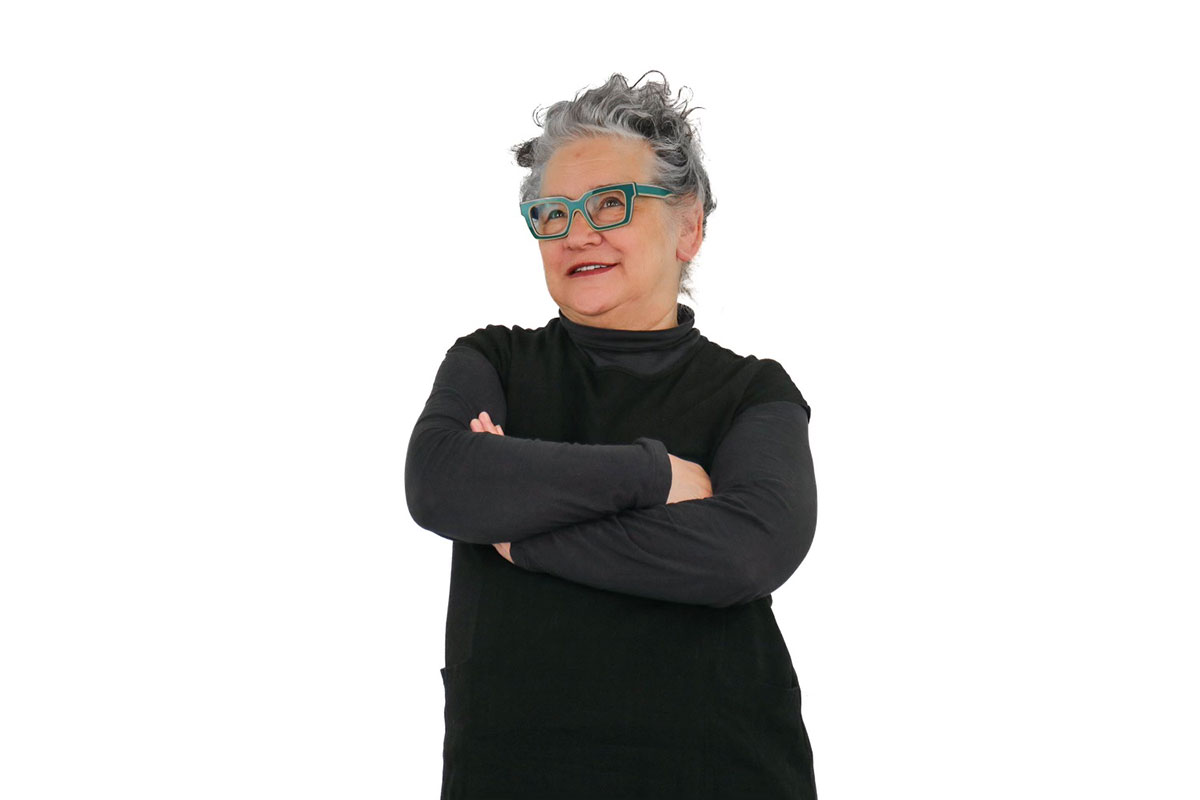
Like Lisa and me, Karen isn’t shrinking when powerful men and their surrogates try to shush her or whisper B.S. to discredit her or at least turn attention another direction. She proactively doubles down on community-building and upping her own game while examining her newsroom’s needs. For instance, she is forming an advisory board with my co-founder Kimberly Griffin as its first member. And no one appoints Kimberly to anything if they don’t want real talk about inclusion and every damn thing that matters in journalism.
Like Lisa and me, Karen is outspoken about what is happening inside the industry as well, including toxic competitive practices that often get ignored, especially when used against sites founded and run by women and people of color. She talks back even if national journalism media don’t always have the courage to report on harmful or unethical practices in local media, especially if on the watches of powerful white men and their friends.
And like Lisa and me, Karen knows that the key to doing real journalism that serves far more than a small power cabal is in building relationships and continually reexamining our own mission, strategies, networks and tactics.
Mississippi newspaper woman Hazel Brannon Smith (see Pete’s book) dared to take on the Klan and corrupt bootleggers and to print Medgar’s Mississippi Free Press in the 1960s, leading to her own bankruptcy after the power structure aligned to destroy her and her newspapers. She once told a national media outlet that “I’m not a lady. I’m a newspaper woman.” Make no mistake: What a real “newspaper woman” does is talk back and fight to live, and thrive, another day.
Our readers rely on us to say and report things they can’t; to fill in the gaps traditional media (still with us in so many ways) leave gaping; and to expose anyone who is trying to pit us against other newsrooms instead of helping ensure we are actually all part of healthy, well-supported news ecosystems filled with a variety of strengths, which our communities need.
I salute Lisa and Karen and so many women like them out there doing the work—and too often not getting either the support or the flowers they deserve. We’re here for the long haul.

